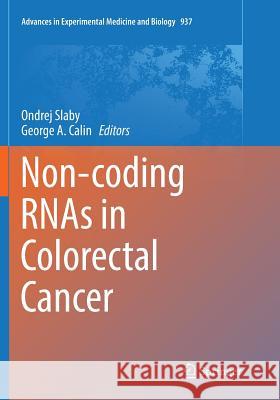Non-Coding Rnas in Colorectal Cancer » książka
topmenu
Non-Coding Rnas in Colorectal Cancer
ISBN-13: 9783319824918 / Angielski / Miękka / 2018 / 252 str.
Kategorie BISAC:
Wydawca:
Springer
Seria wydawnicza:
Język:
Angielski
ISBN-13:
9783319824918
Rok wydania:
2018
Wydanie:
Softcover Repri
Ilość stron:
252
Waga:
0.45 kg
Wymiary:
25.4 x 17.78 x 1.4
Oprawa:
Miękka
Wolumenów:
01
Dodatkowe informacje:
Wydanie ilustrowane











